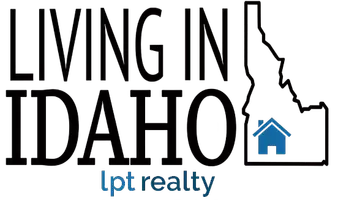How to Use Homeownership as a Retirement Planning Tool

How to Use Homeownership as a Retirement Planning Tool
Introduction
Real estate stands out as one of the most versatile assets for retirement planning, offering numerous opportunities to build wealth while reducing long-term financial risk. Unlike other investments that may fluctuate with the stock marketor experience high volatility, property ownership allows individuals to steadily build home equity, which can later be accessed through options like a home equity loan or home equity line of credit (HELOC). By consistently increasing their net worth through home equity, homeowners gain a stable asset that can be used as collateral for loans or as a source of passive income through rentals, especially valuable for real estate investors. This approach not only contributes to retirement savings but also offers a rate of return that aligns well with long-term financial goals.
For those seeking to diversify their investment portfolio and create multiple streams of revenue in retirement, real estate also offers tax advantages that can help increase overall cash flow. Depending on individual retirement accounts and financial goals, homeownership can allow for tax deductions on property taxes and mortgage interest, which in turn support budget management and expense reduction. Many individuals also consider converting their homes to investment properties or leveraging options like real estate crowdfunding to generate additional retirement incomewhile maintaining financial stability. Working with a real estate agent or financial adviser ensures that retirement strategies are optimized, balancing capital growth through asset classes like real estate while considering factors like inflation, cost of living, and life expectancy to support a secure and fulfilling retirement.
Homeownership: A Key Retirement Asset
Owning a home isn’t just about shelter—it’s a financial asset with significant investment potential. Real estate can increase in value over time, providing appreciation that adds to your net worth. Plus, real estate is often less volatile than stocks, making it an attractive option for long-term financial security.
As homeowners build equity, they create a foundation that offers more flexibility for retirement income. Real estate can be part of a diversified retirement portfolio that includes investments like a 401(k), IRA, and mutual funds to balance risk and generate passive income.
Looking to estimate your current property value? Use our Instant Home Valuation Tool for a quick assessment.
Building Equity and Increasing Net Worth

Equity in a property represents the portion of your home’s value that you truly own—essentially, it’s the difference between what you owe on your mortgage and the current market value of the property. As you pay down your mortgage and reduce debt, your ownership stake in the property increases, gradually building equity. This financial asset is one of the most significant benefits of homeownership, providing not only a sense of stability but also a growing portion of net worth that can be accessed later. Home equity is unique in that it allows you to build wealth through a physical asset that appreciates over time, often at a pace that outpaces inflation.
Over the years, equity growth is also driven by property appreciation—the increase in value due to demand, improvements, or market conditions. For example, making strategic home improvements can boost your property’s value and accelerate your equity growth, providing a higher rate of return on your initial down payment and mortgage contributions. With each mortgage payment, more of your money goes toward the principal rather than interest, creating a steady rise in your stake in the property. The accumulated equity serves as a financial cushion, enabling you to respond to shifts in the economy or unexpected expenses while supporting broader retirement planning goals.
Building home equity also creates new financial possibilities, as it can be leveraged for further investment opportunitiesor to enhance your retirement income. Many homeowners choose to access their equity through home equity loans, HELOCs, or even a reverse mortgage to fund large expenses, consolidate other high-interest debts like credit cards, or reinvest in other asset classes, including real estate investing. These options can allow you to build a more diversified investment portfolio, using your home as collateral while maintaining ownership. Additionally, homeowners with substantial equity have greater financial stability and flexibility, allowing them to take calculated steps toward future financial goals and use their property as a reliable foundation for wealth management and retirement contributions.
Ways to Build Equity Faster:
Extra Mortgage Payments:
Making an extra mortgage payment each year can significantly reduce the total interest paid over the life of the loan, effectively shortening the term of your mortgage and allowing more of your monthly payments to go directly toward the principal balance. This strategy can be especially beneficial for homeowners looking to build equity faster and reduce debt more efficiently. By directing additional payments specifically to the principal, borrowers reduce the outstanding balance at a quicker pace, meaning that future interest payments will be calculated on a lower principal amount, which compounds savings over time. Many financial advisers recommend this approach as a simple way to accelerate equity growth, giving homeowners more flexibility with their finances in the long term.
Additionally, an extra payment can contribute to a stronger financial portfolio, as the accelerated mortgage payoff increases your net worth and reduces the risk associated with long-term debt obligations. This approach is particularly appealing to those who prioritize financial stability and may want to access their home equity sooner for other investment opportunities, such as funding a 401(k), IRA, or additional real estate properties. The ability to pay off your mortgage ahead of schedule also provides peace of mind, as it can reduce monthly expenses in retirement or free up funds for other financial goals. By reducing the overall loan balance sooner, you gain a degree of financial freedom and mitigate the impact of potential inflation or interest rate increases, effectively strengthening your budget and improving cash flow in the years to come.
Home Improvement:
Strategic home improvements are an effective way to increase your property value and build equity, ultimately enhancing your home's resale potential. By focusing on upgrades that add significant value—such as kitchen remodels, bathroom upgrades, or energy-efficient installations—homeowners can create immediate returns on their investment. These renovations not only make the property more attractive to potential buyers but also increase the appraised value, helping you to gain a higher return if and when you decide to sell. Improvements that enhance functionality, sustainability, or curb appeal are particularly valuable, as they appeal to a broad base of future buyers while simultaneously raising your net worth through home equity growth.
In addition to boosting resale value, well-planned home improvements can offer tax advantages, such as tax deductionsfor energy-efficient upgrades or property tax benefits in certain cases. By adding value to your property, you build equitythat you can leverage through options like a home equity loan or home equity line of credit (HELOC), allowing for further investment opportunities or financial flexibility. Enhancing the property also increases its desirability within the real estate market, potentially leading to a faster sale at a higher price point. This approach not only strengthens your investment portfolio but also supports long-term financial goals by providing an asset that appreciates and can be monetized over time. Making strategic improvements is an effective way to combine real estate investing with personal estate planning goals, ensuring your property remains a valuable financial resource for years to come.

Refinancing:
Refinancing your mortgage to secure a lower interest rate can be a strategic way to reduce your monthly payments, cut down on long-term interest costs, and free up more of your budget for other financial goals. By refinancing, homeowners have the opportunity to save a substantial amount on interest over the life of the loan, creating additional funds that can be redirected into other retirement assets like a savings account, mutual fund, or individual retirement account (IRA). This approach not only helps in building a more diversified investment portfolio but also supports retirement planningby strengthening your financial position. Working with a financial adviser or mortgage professional can help determine the best refinancing terms based on current interest rates, ensuring you maximize savings and achieve an optimal rate of return on the equity in your home.
In high-demand markets, refinancing to take advantage of appreciation can also significantly boost your net worth as property values rise. Building equity in these competitive markets not only increases your overall wealth but also gives you leverage for further investments. With the added cash flow from lower monthly payments, you can consider diversifying into other asset classes like stocks, bonds, or even real estate investments, allowing for a well-rounded financial plan. Additionally, increased equity provides options such as taking out a home equity loan or home equity line of credit (HELOC), which can serve as funding for more investments, home improvements, or future retirement contributions. In this way, refinancing can both reduce expenses and enhance your financial portfolio, creating a more stable foundation for retirement and future growth.
Unlocking Wealth by Downsizing
For many retirees, downsizing can be a valuable strategy for freeing up a lump sum of cash by selling a larger propertyand moving into a more affordable home. This process allows retirees to unlock immediate funds from the equity built over years of homeownership. With guidance from a real estate agent and careful investment planning, these funds can be reallocated towards retirement accounts like an IRA, 401(k), or even diversified into options like mutual funds and real estate investing. This approach not only enhances financial stability but also provides flexibility in managing retirement goals without depleting other savings.
By reallocating this cash difference, retirees can secure a range of financial benefits that enhance income during retirement. For instance, the money saved on monthly mortgage payments or property taxes can be used to supplement pension income, cover health insurance premiums, or fund emergency savings. Additionally, moving to a smaller property can reduce liability for maintenance and upkeep, allowing retirees to focus on enjoying retirement. Downsizing can also provide a buffer against inflation and changes in the cost of living, offering tax deductions in certain cases and supporting a more sustainable budget for long-term retirement savings and estate planning.

Benefits of Downsizing:
- Lower Monthly Costs: Smaller homes generally have lower expenses, including property taxes, maintenance fees, and insurance.
- Lump-Sum Payout: The proceeds from downsizing can go toward increasing retirement savings or diversifying into other asset classes.
- Simplified Lifestyle: Downsizing reduces the need for extensive home maintenance, giving retirees more freedom to travel or enjoy hobbies.
If you're considering downsizing, use our View Homes for Sale tool to explore options that fit your retirement budget and lifestyle.
Reverse Mortgages as a Retirement Funding Option
A reverse mortgage can turn your home’s equity into cash without selling. Available to homeowners 62 or older, a reverse mortgage allows you to receive payments while staying in your home. The loan is repaid when you sell, move, or pass away, giving you the flexibility to maintain homeownership while accessing much-needed income.
Advantages of a Reverse Mortgage:
- No Monthly Payment Obligation: Reverse mortgages don’t require monthly payments, which can reduce retirement expenses.
- Additional Income: This strategy can be a good option for those looking to cover living costs, health insurance, or unforeseen expenses in retirement.
- Home Equity Access: It enables access to your home equity without selling, providing a stable option for ongoing income.
Our Affordability Calculator can help you determine if a reverse mortgage is a suitable solution based on your retirement goals and financial needs.
Rental Income and Passive Cash Flow

Turning part of your home into a rental property or purchasing a separate investment property can provide a reliable stream of passive income during retirement. By renting out a spare room, basement suite, or nearby investment, retirees can supplement their retirement income and increase cash flow without needing to rely solely on savings or pensionfunds. Becoming a landlord also offers potential tax deductions for property maintenance, property taxes, and even mortgage interest, reducing overall taxable income while contributing to a diversified investment portfolio.
As a rental property owner, you gain an additional revenue stream that can be reinvested into retirement accounts like a 401(k) or IRA, helping your savings grow while potentially boosting net worth. With guidance from a real estate agentand possibly a financial adviser, managing rental income can become a strategic part of your retirement plan. Rental income can also serve as a hedge against inflation, helping to offset rising costs of living and covering other expenses, such as health insurance or home maintenance. This approach not only provides financial stability but also creates long-term profit and growth potential through real estate, giving you flexibility and security throughout your retirement years.
Steps to Generate Rental Income:
- Evaluate Your Property: Ensure your property is suitable for renting, and consider renovations if necessary.
- Understand Local Regulations: Check property rental laws, especially those governing taxes, insurance, and tenant rights.
- Advertise and Manage: List your rental property and vet tenants carefully to ensure a steady, reliable income stream.
Rental income can be especially effective in areas with strong rental markets. Idaho’s growing population means demand for housing is high, making rental properties attractive investments for retirees.
Final Thoughts
With thoughtful planning, homeownership becomes a valuable component of retirement. Leveraging options like equity, downsizing, reverse mortgages, or rental income can provide a blend of financial security, diversification, and stability. Real estate can serve as a buffer against market risk, inflation, and rising costs of living, making it a wise investment strategy for long-term retirement wealth.
For tailored advice on using your home in retirement planning, connect with our team at Living in Idaho to explore personalized solutions.
FAQs
How does real estate benefit retirement planning?
Real estate offers a dependable path for equity growth and financial stability, allowing homeowners to increase net worth while benefiting from income opportunities. For many, homeownership becomes a valuable part of their retirement strategy by building up home equity over time. This equity can later be accessed through options like a home equity line of credit (HELOC), refinancing, or even by selling and downsizing, each providing access to funds without disrupting other retirement savings. Unlike the stock market, which can be impacted by volatility, real estate provides a steady way to grow wealth with lower financial risk.
In addition to equity growth, real estate can generate passive income if used as a rental property or for flipping. This revenue can then be invested in retirement accounts like a Roth IRA or 401(k), providing tax advantages and supporting long-term income goals. Real estate can also be used as a hedge against inflation, with property values often increasing over time, thus protecting purchasing power. As a tangible asset, real estate fits well into a diversified investment portfolio alongside mutual funds, bonds, and savings accounts, enhancing overall financial security and ensuring flexibility in managing future expenses.
What is a reverse mortgage?
A reverse mortgage is a financial tool that allows eligible homeowners—typically aged 62 and older—to access the equity built up in their home without needing to sell the property. Unlike a traditional mortgage, with a reverse mortgage, homeowners receive payments from a lender, with the loan repaid only when the homeowner moves out, sells the home, or passes away. This structure provides retirees with an opportunity to generate cash flow from their real estateinvestment, which can be a useful supplement to pension income, Social Security, or other retirement funds.
Reverse mortgages are often used as a way to fund retirement expenses, cover health care costs, or pay down other debts, like credit card debt or student loans, without impacting retirement accounts such as IRAs or 401(k)s. Many homeowners use these funds to improve quality of life during retirement, maintaining home ownership while tapping into their home equity. Because payments are deferred until the home is sold or vacated, reverse mortgages provide flexibility, offering a financial safety net while preserving other assets for estate planning and long-term financial security.
Should I consider downsizing when I retire?
Downsizing can free up cash, reduce expenses, and simplify life. It’s a good option for retirees looking to maximize their retirement income.
Is rental income a good option for retirement?
Yes, rental income can provide passive income and boost cash flow, helping support financial stability throughout retirement.
What is financial planning?
Financial planning is a process of setting financial goals and creating a structured approach to achieve them. This includes analyzing income, expenses, investments, and future needs such as retirement, education, or purchasing a home. A well-rounded plan often covers budgeting, saving, investing, and risk management through insurance. It can help increase net worth over time and ensure financial stability.
How do I plan for retirement?
Planning for retirement involves setting clear financial goals, estimating the needed retirement income, and building a diversified investment portfolio. Steps include contributing regularly to a retirement account (such as a 401(k), IRA, or pension), managing debt, and investing in assets that align with your timeline and risk tolerance. Financial advisers can offer guidance to optimize interest rates, tax benefits, and help account for inflation in your planning.
Why is planning for retirement important?
Retirement planning is crucial to ensure that you have sufficient income when you are no longer working. It helps manage financial risks by preparing for rising costs, such as health care and inflation, while maximizing tax advantages. Proper planning can safeguard against outliving savings, provide stability, and help you achieve financial freedom in retirement.
What are employer-sponsored retirement plans?
Employer-sponsored retirement plans are retirement savings accounts provided by employers, such as 401(k) or 403(b)plans. These plans often include features like tax-deferred growth and potential employer matching contributions, making them a valuable tool for retirement savings. Contributions are typically deducted from payroll, making saving automatic and accessible to most employees.
Categories
Recent Posts










Leave a Reply

